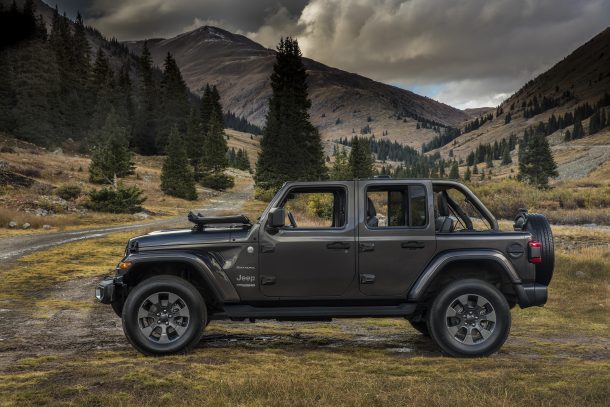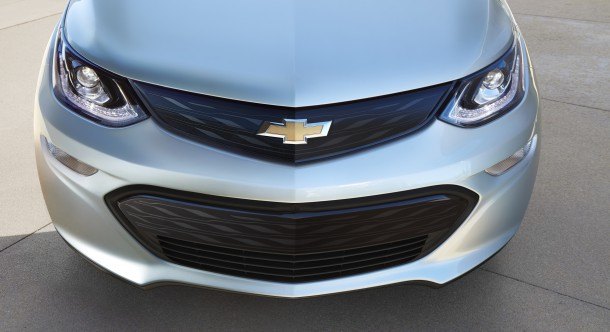#AutomotiveSales
Could Virtual Test Drives Transform the Car-buying Experience?
With large hunks of the nation still under varying degrees of pandemic-related restrictions and accompanying panic, auto dealerships haven’t been awash with customers. Many that did reopen have been forced to follow distancing guidelines, frequently limiting the number of people allowed on the premises. Hoping to avoid closing permanently and relinquishing ownership to the bank, they’ve come up with some interesting solutions to keep their clientele interested.
Virtual test drives aren’t exactly new, but they have become an increasingly popular avenue for dealerships hoping to drum up business in 2020. While we’ve seen salespeople giving tours of new product as they hit the lot for years, on-board video is typically reserved for independent review purposes. That’s largely because nobody really expects a fair assessment from the person selling the vehicle. However, with in-person test drives becoming quite difficult, showrooms want to exercise every option they have to draw in customers.
COVID-19 Fallout: U.S. Auto Sales Crater in Q1
Surprising exactly no one, sales numbers for the automotive industry in this country are grim. With stay-at-home edicts being encouraged in most states and various social distancing measures in place to help temper the spread of COVID-19, it’s understandable that a limited numbers of customers are darkening the doors of the few showrooms that remain open.
The first two months of this year were reasonably robust, so the negative numbers can almost entirely be chalked up to March’s challenging conditions (to put it mildly). As a programming note, the brands of Volvo, Jaguar Land Rover, and Mercedes-Benz won’t we releasing their numbers until later in the month. This explains the holes in our chart.
Have You Heard About the Coronavirus Being Bad for the Economy Yet?
As we attempt to wean ourselves off endless discussions the new coronavirus, we’ve noticed there’s not exactly a glut of alternative news out there. Trade shows are being delayed, factories are being idled, and the whole world seems to be in standby mode as we attempt to stall the spread of COVID-19 following its migration out of China.
Regional quarantines in Asia were already doing a number on supply chains, and it wasn’t long before manufacturers around the world began idling production to further slow the virus’s spread. By the beginning of March, it was becoming quite clear that auto sales would suffer significant impacts as people spent the next several weeks isolated in their own homes. Now, the push is on to assess just how much this whole ordeal will impact an OEM’s bottom line.
India's Auto Market Also Sucks
We’ve spent the better part of 2019 describing how unwell the automotive markets of China, Europe and North America have become, which might accidentally lead some to believe that most other markets are performing better. While Brazil expects continued expansion and a presumably healthy 2019, its rosy outlook is unique.
Japan saw a modest decline in registrations (just 0.3 percent) through the first half of the year, while Russia recorded slippage of 2.4 percent. But figures from India were far worse. In fact, the country is looking at the biggest sales slump in almost twenty years. Early estimates suggest passenger vehicle registrations may have plunged as much as 30 percent in July, after falling 17.5 percent just a month earlier. Most annual outlooks forecast a double-digit decline in overall sales.
February Sales Freeze: Most Brands Out in the Cold Last Month
Most people don’t care to venture out into the frigid weather unless it is absolutely necessary, instead reserving time for indoor activities such as enjoying the heated delights of the nearest wood-burning stove. Given the sales results shown here for February, it would indeed seem that car buying doesn’t rank too high on the Top 40 of most Americans when the weather is foul.
Overall, sales were off nearly three percent compared to this time last year, fuelling speculation by talking heads that 2019 will be the first calendar year in ages that the industry fails to collectively move more than 17 million units.
East Vs. West: Why General Motors Is Obsessed With China
Last month, General Motors announced a plan to introduce more than 20 new and refreshed models in China in 2019 to “maintain its growth momentum in the world’s largest vehicle market” and pump EVs into what is probably the most electric-friendly region on the planet.
GM appears to love China and not without good reason. As the automaker’s largest retail sales market since 2012, GM hasn’t been afraid to fully embrace it — at the expensive of looking like it’s playing favorites and putting its homeland in the doghouse. But is that what’s really happening, or does it just feel that way when an iconic American company starts playing patty cake with a foreign entity?
Old Man's Game: Car Dealerships Can't Hold Onto Younger Employees
There’s a popular notion that young people are ruining the automotive industry. It probably has something to do with the steady climb of average transaction prices and a median income for millennials that’s comparatively worse than that of their parents at a similar age. Plenty of evidence exists that younger individuals aren’t particularly fond of the car-buying experience.
They don’t seem particularly fond of the car selling experience, either. Millennials account for nearly 60 percent of dealer hires but shops lose over half of them every year, according to a study by the management firm Hireology. That’s an impressively high turnover rate that probably isn’t helping turn around stagnating car sales, as it takes a while to master any profession.
U.S. Auto Sales, July 2018: Plenty of Red … Unless You're Fiat Chrysler
Major manufacturers saw their fortunes take a dip in July, with red ink spilling across the page like an airport departures board during a snowstorm.
More than ever, sales performance seems tied to the number of crossovers and SUVs available at a given OEM. Sedan heavy marques are taking a beating. Even Ford’s strong selling truck line could not drag the company’s results into the black, thanks to a tanking of sedan sales.
Brexit Seems to Have Really Screwed Up Britain's Car Market
While some of Europe saw modest auto sale gains through the first nine months of 2017, the region has mirrored North America’s decline in deliveries since the end of the summer. The United States saw eight consecutive months of declining sales this year, with a positive bump in September and better than expected volume in Canada.
Europe, meanwhile, saw the inverse. Passenger car registrations fell 2 percent year-over-year to roughly 1.43 million deliveries in September, despite August seeing a 5.6-percent improvement. Overall, 2017 has the makings of a unsatisfactory sales year for both regions. But Europe seemed to be doing alright before the U.K. suddenly stopped buying cars.
British registrations took a massive nosedive after Brexit. By September, it represented a monthly decline of 9.3 percent, compared to Germany’s 3.3 percent slide. Even though the rest of the continent saw a gain in sales, having Europe’s two largest markets lagging guaranteed the net loss.
Japan Still Isn't Fond of American Automobiles - Except for Jeep
It’s no secret the Japanese marketplace has never made room for American automobiles. Western cars have a serious image problem in the Land of the Rising Sun, compounded by an exceptionally high cost of entry that prohibits outside companies from wanting to risk establishing an extensive dealer network. The end result is a handful of American cars being sold every year — primarily in boutique shops as novelty items.
The exceptions are premium offerings from Europe and Jeep. That isn’t to suggest that Jeep products are common place in Japan but they are one of the few domestic offerings that have achieved any kind of sales consistency or growth within the country. It’s carving out a small place for itself in the Eastern market and putting other American brands to shame.
Jeep has a storied history in Japan. In the mid-nineties, it was mixing it up with other domestic brands — made more viable by a favorable exchange rate. A few years later, foreign automakers saw their already meager sales dwindling to practically nothing and some (Ford for instance) pulled out of the country entirely. But Jeep held on and became America’s number one brand in Japan.
Japanese Automakers Desperate to Spackle Gaps in Their Lineup
With trucks and crossovers dominating more of the market every month, Japanese automakers are making every effort to bring in new models that will satisfy consumer demands. Soundly constructed economy vehicles have long been the cornerstone of most Japanese nameplates but, with reliability improving among many brands and fuel efficiency being less important to consumers, we’re seeing a shift in the Far East.
Everyone from Toyota, Mazda, Honda, and Nissan have all expressed plans to focus on light trucks this year. Some Japanese brands are even banking on the continued growth of the segment to stage their comeback. “I think SUV sales will continue growing even if gas prices rise,” Mitsubishi CEO Osamu Masuko explained, citing the consumer appeal of higher seating and overall sense of safety. “The SUV segment is increasing its market share worldwide, and this is where we have long been strong,” he said. “So, we will continue to make full use of this technology.”
Every Bolt in GM's First Shipment to Korea Was Reserved Within Hours
General Motors began taking pre-orders in South Korea last week for the all-electric Bolt. In under two hours, the entirety of the first shipment was spoken for. By the end of that day, March 17, more than 2,000 additional orders had been placed, proving — once again — that GM is killing it in Asia and Koreans are tech-obsessed.
Incredibly, most of those customers hadn’t even laid eyes on the vehicle. The Bolt doesn’t make its official Korean debut until March 30th, when it will appear at the 2017 Seoul Motor Show.
Lamborghini Takes a Pass on Electrification for Reasons Other Than Claimed
Lamborghini has said it is more or less open to the idea of an all-electric car, though it definitely hasn’t considered it seriously. While parent company Volkswagen AG has made lofty promises of sweeping electrification and imposed its zero-emission mindset onto the majority of its automotive brands, the Italian supercar manufacturer is not yet among them.
However, Lamborghini has shown that it’s not immune to industry trends. Its almost-family-friendly Urus SUV begins production next month and the automaker has said it plans to launch a hybridized version by 2020. While you can’t ignore the LM002 that preceded it, that’s still a far cry from the pavement-scraping exotics it’s best known for. There has also been plenty of speculation that the company was developing a Porsche Mission E-based electric model called Vitola. Lamborghini dispelled those rumors and has since gone on to say that a battery-only car won’t be on the table before 2025 — and perhaps not even then.
When is the Best Time to Buy a Used Car? Right Now
If you fancy yourself an automotive bargain hunter, the best time to score a deal on a used car is right around the corner. So, stop clicking around on Autotrader for five minutes and equip yourself with some useful knowledge to better your odds of snagging some savings.
China 2015: Cars of Rmqi, Xinjiang Uyghur
After covering the northernmost city in China (Mohe), we now travel to Ürümqi in the Xinjiang Uyghur autonomous region in the westernmost part of China. I thought we may as well push it to the extreme and explore the provincial capital furthest from Beijing, a whopping 1,500 miles (2,400 km) away.
In fact, Ürümqi – pronounced something resembling “Yooloomooshee” – is both geographically and culturally closer to Kabul in Afghanistan than it is to Beijing. The majority of the population is Muslim and most Chinese road signs are dubbed in Arabic and sometimes Cyrillic script.
What are the most popular vehicles in this remote part of the world?






























Recent Comments